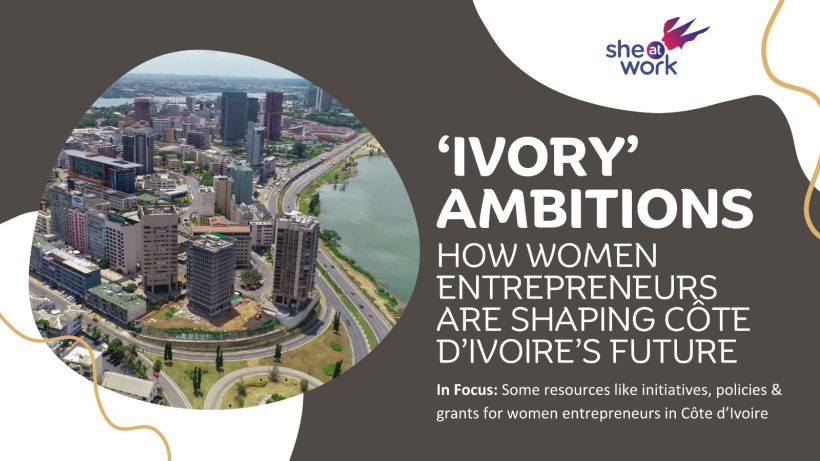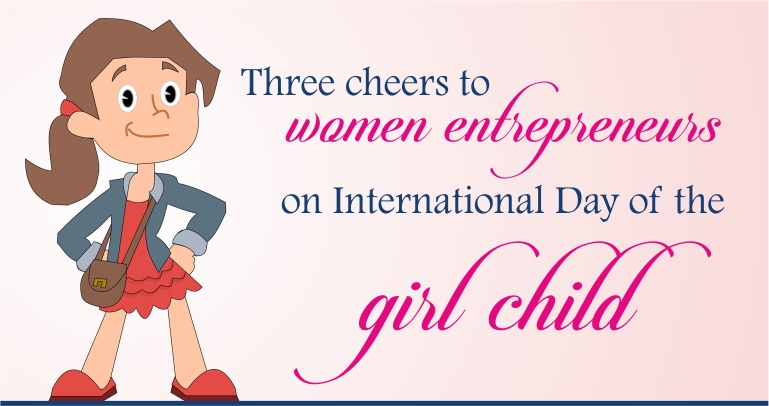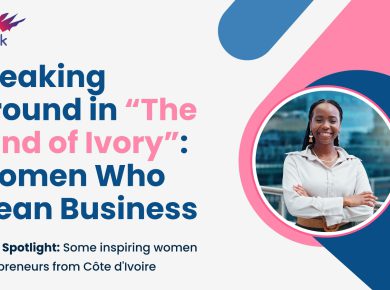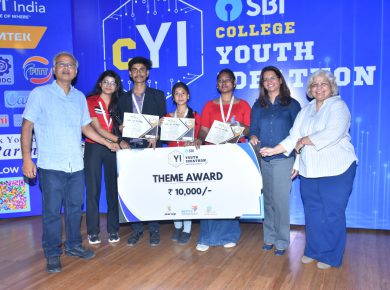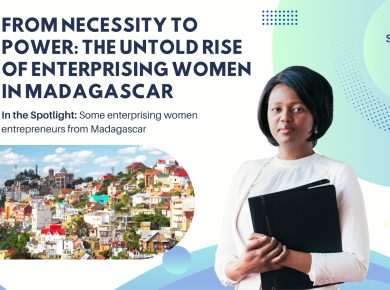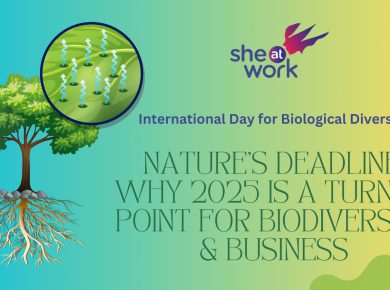In Focus: Some resources like initiatives, policies & grants for women entrepreneurs in Côte d’Ivoire
#IvoryCoastWomen #SheLeadsCI #WomenInBusiness #EmpowerEntrepreneurs
Often called “The Land of the Ivory,” Côte d’Ivoire is not only rich in history, but also in opportunity – especially for its women entrepreneurs. As the second-largest economy in West Africa and one of the region’s fastest-growing markets, the country signifies a fertile ground – for innovation, small business growth & women-led enterprise.
Empowering Women Entrepreneurs: Pathways to Progress
Côte d’Ivoire is emerging as a beacon of hope for inclusive entrepreneurship, despite the persistent challenges faced by women in accessing capital, training & market opportunities. A range of targeted initiatives is beginning to close the gender gap & unlock the potential of women in business. One such initiative is – the Women Entrepreneurs Finance Initiative (WE-FI), which supports women-led cooperatives by improving their access to finance and markets. Similarly, the International Finance Corporation (IFC) is partnering with Ivorian financial institutions – to offer tailored financing to small and medium enterprises (SMEs) run by women.
Banking on Women: How Côte d’Ivoire is Funding Female Success
A prominent effort is Fin’Elle, a micro and mesofinance institution launched by the Cofina Group. Dedicated exclusively to women – Fin’Elle provides loans, capacity building & financial literacy programs to support female entrepreneurs at every stage of their journey.
With a population nearing 30 million and a rising GDP per capita, Côte d’Ivoire is uniquely positioned to transform its economy – by investing in women.
Here let us explore the growing ecosystem of resources available to women entrepreneurs and how they are reshaping the country’s economic landscape – one business at a time.
- National Development Plans
The 2021-2025 National Development Plan NDP, capitalizes on international and regional development priorities, in particular the Sustainable Development Goals (SDGs) and the African Union’s 2063 vision.
The objectives spelt out are: To achieve the economic and social transformation necessary to raise Côte d’Ivoire, by 2030 – to the rank of upper middle-income country. To develop national industry to increase decent jobs. To ensure better factor productivity, in particular human capital & to strengthen state governance in order to support the private sector in a development process that leaves no one behind.
https://www.effectivecooperation.org/c%C3%B4te-d%27ivoire-national-development-vision-and-plans
- Government Policies
Côte d’Ivoire has implemented various government policies aimed at empowering women entrepreneurs – including initiatives to formalize informal businesses, improve access to finance & promote skills development. These efforts also address legal and social barriers hindering women’s economic participation.
Here are some factors keyed in.
Formalization of informal sector: Côte d’Ivoire’s government is actively working to formalize the informal economy, where many women-owned businesses operate. This includes providing support for registration and compliance with regulations.
National Council for Women: The National Council for Women, launched in 2023, aims to advise the government on women’s rights and promote gender equality.
Access to finance: Initiatives are in place to improve women entrepreneurs’ access to finance, including micro-finance programs and support for accessing credit from banks and other financial institutions.
Business support and mentoring: Various programs provide business support, mentoring, and training for women entrepreneurs.
National Roadmap for Women’s Entrepreneurship: A national roadmap outlines a vision for targeted reforms and interventions across the business landscape to improve the economic prosperity of women entrepreneurs.
- WE-FI
This initiative, funded by the World Bank, aims to improve market access and reduce constraints on financial service access for women-led businesses.
The Women Entrepreneurs Finance Code (the WE Finance Code or the Code) is a commitment by FSPs, regulators, development banks & other financial ecosystem players – to work together to increase funding provided to women-led micro, small and medium enterprises (WMSMEs) around the world, so that they can grow and add value to the economy and their communities. It was officially launched in October 2023 at the World Bank – IMF Annual Meetings in Marrakech.
https://www.we-fi.org/we-finance-code
- IFC Investments and Advisory Projects
IFC, a member of the World Bank Group, invests in and provides advisory services to private companies and financial institutions in Africa. Their aim is – to promote private sector growth and development. These investments and advisory services target various sectors, including infrastructure, financial inclusion, and sustainable development – and are designed to create jobs, stimulate economic growth, and improve living standards.
Partnering with banks, IFC tries to boost access to finance for smaller businesses, particularly those owned and led by women, through investments and advisory projects.
They are a leading provider of advice – to promote a sustainable private sector and mobilize capital from other investors who invest alongside us in critical sectors for Africa’s future, including infrastructure, health, telecoms, finance, and more. IFC also works to support smaller businesses and to narrow the gender gap in the private sector.
So, they play a comprehensive role by helping businesses improve productivity and establish links to broader markets, expand financial and social inclusion – and boost prosperity in ways that help limit conflict.
Their investments across a range of sectors help drive the region’s development forward. They collaborate with other World Bank Group institutions – to support agriculture, power, job creation, health, education, and capital markets. Their priorities include – bridging the infrastructure gap, helping build productive industries & fostering inclusive business approaches.
https://www.ifc.org/en/where-we-work/africa
- International Finance Corporation (IFC)
To boost access to finance for thousands of smaller businesses in Côte d’Ivoire, with a focus on those owned and led by women, IFC launched in March 2025 – two investments and one advisory project with leading banking groups Société Générale Côte d’Ivoire (SGCI), Société Ivoirienne de Banque (SIB) and Bridge Bank Group Côte d’Ivoire (BBGCI).
Today, Ivorian women entrepreneurs represent a true engine of economic growth, though they continue to face structural obstacles – especially regarding access to financing, which is often hindered by gender stereotypes.
These projects highlight IFC’s deepening commitment to inclusive economic growth and development in Côte d’Ivoire and will ease access to finance for smaller businesses in the country, helping them grow, create jobs & enter new markets.
All three projects are part of IFC’s Small Loans Guarantee Program European Commission/Private Sector Window (SLGP EC/PSW or the Program), a programmatic approach to de-risk and scale-up financing for SMEs in eligible countries.
IFC’s program in Côte d’Ivoire is its largest portfolio in the WAEMU zone and one of its largest in Africa.
- SME Finance Forum (SMEFF)
In 2012 SME Finance Forum was established by the G20 and is managed by the IFC with a core objective to scale financial services for SMEs. As the leading SME finance network globally, the forum steers industry innovations, supports replication of best practices, recognizes global champions, drives thought leadership, convenes influential stakeholders & fosters global knowledge transfer.
The SME Finance Forum (SMEFF) is a network of 300+ members and affiliates with a coverage spanning across 190+ countries. The members are primarily financial services providers such as – banks, fintechs, non-bank financial institutions, development finance institutions, credit guarantee companies & microfinance institutions. The affiliates consist of policy advocacy groups, academia, SME and banking associations, training providers, and non-profit organizations.
Their mission is – to accelerate access to finance for small and medium business worldwide by promoting knowledge exchange, policy change & new connections.
https://www.smefinanceforum.org/about/what-we-do
- Fin’Elle
This Cofina Group subsidiary provides micro and mesofinance loans to women-owned SMEs.
While more than 70% of African women face numerous barriers in terms of access to financial services or simply do not have access to them, Fin’ELLE aims to increase the proportion of eligible women and to increase the volume of loans allocated to them.
The Program is designed to support (women led) MSMEs by:
Improving access to finance: Fin’Elle’s microfinance services make funding more accessible to women entrepreneurs, who often face more significant barriers when accessing traditional financing.
Increasing capability building: Fin’Elle and Groupe Cofina provide training and mentoring to help women entrepreneurs hone their skills and also better prepare for business. This can positively affect the success of (women-led) MSMEs, as they will be better equipped with the information and abilities needed to grow their businesses.
Insurance Solutions: Fin’Elle has insurance products, tailored specifically to small businesses, which helps to provide peace of mind and security for (women-led) MSMEs. This can give them the confidence to invest in growth, as they know they will be protected if they experience any losses.
Increasing opportunity in underserved areas: By opening branches in underserved areas, Fin’Elle provides entrepreneurs with access to finance without needing to relocate. This can help to stimulate local economies and open opportunities for (women-led) MSMEs in previously underserved areas.
- Global Project Partners
Sequa gGmbH is supporting a project through the German Federal Ministry for Economic Cooperation and Development, which includes SheMadeIT Africa (career guidance for female STEM students), Women on Board (supporting businesswomen and managers to become board members), and WiB Finance (financial inclusion training).
As part of the Marshall Plan with Africa and the G20 Compact with Africa investment partnership, the German Federal Ministry for Economic Cooperation and Development launched the special initiative Training and Employment in 2019.
The aim of the special initiative, which is called – “Decent Work for a Just Transition” since the beginning of 2023, is to use innovative formats and flexible instruments to strengthen the conditions for private investment and to create more and better employment opportunities for the rapidly growing young population in Africa. The special initiative is active in the following countries: Egypt, Ethiopia, Côte d’Ivoire, Ghana, Morocco, Rwanda, Senegal, and Tunisia.
https://www.sequa.de/en/projects-programmes/partnerafrica
https://www.global-project-partners.de/cote-d-ivoire-and-senegal
- Entrepreneurs du Monde
This organization has ongoing projects in Côte d’Ivoire. Entrepreneurs du Monde offers social microfinance, allowing the very poorest to access financial services, develop an income-generating activity & improve their living conditions.
Entrepreneurs du Monde supports and encourages the poorest – to develop a very small business and helps them to enter the world of work, so that they can begin creating work and escaping from poverty.
They provide energy products that have significant health, financial and environmental benefits. They improve the wellbeing of vulnerable people and help them develop income-generating activities.
Prioritising agriculture in its work, Entrepreneurs du Monde provides agricultural training, loans adapted to the harvest cycle and granaries for storage; they also seek to strengthen the farming sector.
- GIZ Support
GIZ, through a project with six Senegalese and Ivorian incubators, provides training and support to women entrepreneurs in both countries, including a learning journey in Morocco.
GIZ (Deutsche Gesellschaft für Internationale Zusammenarbeit), the German Agency for International Cooperation, provides support in various areas of international cooperation for sustainable development. They work on projects focused on sustainable development, global health, climate change, and more, partnering with organizations and individuals in many countries.
Key areas of GIZ support:
Sustainable Development: GIZ works to promote sustainable development by supporting projects in areas like climate change, environment, sustainable urban development, and sustainable economic development.
Global Health: GIZ supports countries in building resilient health systems and improving healthcare access, including promoting training for health workers, strengthening health services, and expanding services for specific populations.
Global Programs: GIZ implements global programs based on global agendas, addressing transboundary challenges and aligning with German development policy.
Partnerships: GIZ collaborates with companies, foundations, and civil society organizations to implement projects and develop tailor-made solutions.
Technical Support: GIZ provides technical support to partner countries, helping them to implement projects and reforms.
Capacity Building: GIZ supports capacity building in various areas, including training for election observers, peacekeepers, and other professionals.
Environmental Protection: GIZ supports efforts to protect the environment, including promoting renewable energy and reducing emissions.
Sustainable Economic Development: GIZ works on projects to promote sustainable economic growth, including supporting vocational training and helping businesses adapt to labor market needs.
- World Bank’s Women, Business and the Law Program
The World Bank is helping the government implement reforms to family law – to increase female participation in business.
The World Bank Group’s Women, Business and the Law (WBL) is a global benchmarking project that provides comprehensive and comparable data on how laws, regulations, and policies affect women’s economic opportunities and private sector development in 190 economies. It is housed in the World Bank’s Development Economics Global Indicators Group (DECIG).
When societies achieve gender equality, economies become more resilient. That’s why Women, Business and the Law is committed to informing research, policy discussions, and development operations on the state of women’s economic opportunities. Women, Business and the Law demonstrates the progress made while emphasizing the work still to be done to ensure economic prosperity for all.
The Women, Business and the Law data are presented in a global report, published annually, that highlights reforms and examines the impact of legal and policy changes on women’s access to jobs and markets in 190 economies.
https://wbl.worldbank.org/en/aboutus
- DigiFemmes
DigiFemmes is a holistic technical assistance program – providing women entrepreneurs in Cote d’Ivoire with the resources they need – to run and grow successful businesses by leveraging digital and data skills to make their companies more efficient and profitable.
Collocated in existing coworking spaces in Abidjan and San Pedro, the program provides participants with – collaborative workspaces, reliable internet connection and a lively community.
Two different participation tracks will be open to women who have already founded a small to medium-size business (W-SMEs) as well as women looking to gain additional data and digital skills (N-SMEs). Each track will run once a year for an initial 3-year period, with the potential to continue on a rolling basis.
- GroFin Ivory Coast
GroFin Ivory Coast is committed to supporting women entrepreneurs. It is a pioneering private development financial institution specializing in financing and supporting small and growing businesses (SGBs) across Africa and the Middle East.
GroFin is increasing its focus on developing women entrepreneurs. Women entrepreneurs in developing economies like Ivory Coast can play a powerful role in fostering economic growth and creating employment, but still face a wide range of challenges. GroFin believes our business model of combining tailored finance and business support is therefore very well suited to developing women entrepreneurs.
- ELLEVER program
Ecobank Côte d’Ivoire, a subsidiary of Ecobank Transnational Incorporated (www.Ecobank.com), the leading Pan African Bank, takes a major step forward in its commitment to financial inclusion with the launch of the first Gender Bond in West Africa. This groundbreaking bond issuance, amounting to XOF 10 billion, aims to mobilize funding for women-owned and women-led businesses, reducing financing inequalities and fostering inclusive economic growth.
Named “Ellever Gender Bond 6.5% 2024-2029,” this bond has been structured and arranged by EDC Investissement Corporation (EIC), Ecobank’s Brokerage and Asset Management subsidiary. It marks Ecobank Côte d’Ivoire’s second bond issuance after its initial fundraising in 2013.
Since its inception, the ELLEVER program has made a tangible impact on women entrepreneurship. In 2024, over 3,465 businesses registered, benefiting from XOF 13.25 billion in disbursed loans. However, access to financing remains a significant challenge for women entrepreneurs in West Africa, where less than 20% of women-led SMEs have access to adequate funding. Globally, Gender Bonds represented only USD 14.5 billion, accounting for just 1.5% of the sustainable bond market in 2023, underscoring the need to expand such initiatives.
- JAMII Femmes Initiative
The Women In Africa (WIA) and The Coca-Cola Foundation joined forces in May 2022 to support 20,000 African women entrepreneurs over the next three years through the “JAMII Femmes” initiative.
The JAMII Femmes initiative – aims to increase the impact of African women entrepreneurs on the African economy and support the creation of innovative solutions for sustainable development that will contribute to positive change in Africa by improving the quality of life of tens of thousands of people.
The programme will give participants lifetime access to the WIA network, and thus, to potential collaborators throughout Africa.
WIA will create an Advisory Council for each country, composed of local personalities who will accompany the programme. Therefore, women entrepreneurs will be able to be in contact with these prominent personalities. They will be highlighted on WIA’s social media throughout the programme.
- African Women’s Entrepreneurship Program (AWEP)
The African Women’s Entrepreneurship Program (AWEP) is a women’s entrepreneurship initiative that provides funding and capacity-building resources to African businesswomen to promote their participation in international trade.
The program was first established at the 2010 African Growth and Opportunity Act (AGOA) forum by the U.S. Department of State, and it initially brought women entrepreneurs to the United States through the International Visitor’s Leadership Program (IVLP) for capacity building and professional development workshops.
The workshops provide information on a series of topics such as – U.S. business practices and access to U.S. markets under AGOA. Upon return to their respective countries, AWEP participants launched AWEP chapters in 44 African countries, many of which are still active today, and serve as business associations and networking hubs.
AWEP was relaunched in 2022 with new programmatic features during the United States-Africa Leaders’ Summit in Washington, DC. AWEP’s relaunch supports the expansion and export capability of women-led businesses in Africa by bolstering access to capital and markets and skills and capacity building.
The program promotes women’s leadership throughout the continent. It focuses on connecting an inclusive membership and empowering AWEP women through local trainings and workshops in Africa. As part of a partnership between the U.S. Department of State and the U.S. African Development Foundation, AWEP also provides grants to established women-owned SMEs and works to connect African women entrepreneurs with American buyers and diaspora-owned businesses.
These advancements equip African businesswomen with the tools and opportunities to grow their businesses, serve as community leaders, and drive social and economic progress on the continent. AWEP’s relaunch empowers African women entrepreneurs on the ground to increase their participation in international trade.
https://www.state.gov/african-womens-entrepreneurship-program
